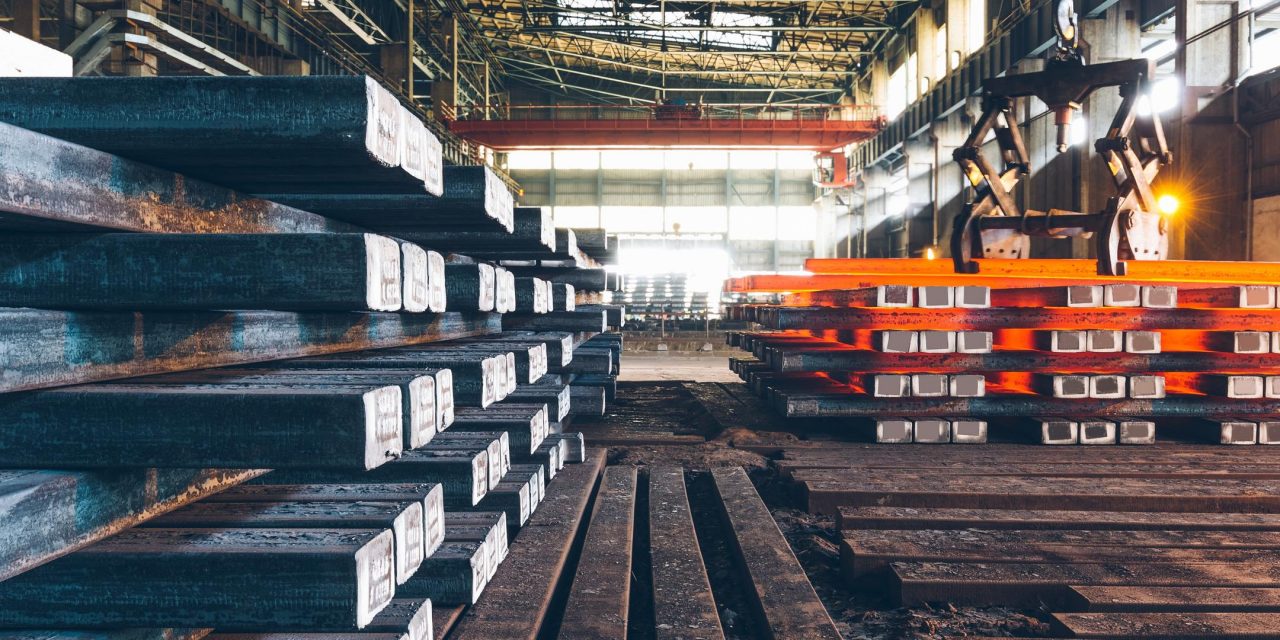Acciaierie d’Italia, the largest Italian flat steel producer, will be able to keep open its hot end, the steelmaker confirmed June 23.
The Italian State Council overruled on June 23 a decision by the Lecce regional administrative court, thus allowing the continuation of crude steel production at the Taranto plant. The decision put an end to months of uncertainty for the major player, in what is the second largest European steel market.
As reported on Feb. 13, the Lecce regional administrative court said that Acciaierie d’Italia (at that time ArcelorMittal Italia) had to shut all hot-end operations within 60 days at its Taranto plant to curb emissions. ArcelorMittal, then the main shareholder, appealed against this decision to the Italian State Council.
“The hope is that now with this decision it is possible to establish a ‘legal’ and ‘political’ starting point from which to restart the industrial activity of the site, without any further situations of uncertainty that have characterized the operation and management of the most important industrial site of our country,” Alessandro Banzato, president of Italian steel federation Federacciai told Platts June 23.
“We welcome the decision of the Court, Italy is a major transformer market so we need a strong domestic player in particular in a period when it is not so easy to find materials,” Paolo Sangoi, the new president of ASSOFERMET Acciai, the Italian service center association, told Platts. “This is a very important decision because it puts an end to uncertainties on the future of the former Ilva and it will mark a new beginning for the company that can now put in place a serious green industrial plan.”
Acciaierie d’Italia released a statement June 23 in which the company said “that it is ready to present its proposed plan for the ecological transition of the Taranto plant with the aim to produce green steel.”
The company did not elaborate on its future green plan, but according to union sources, a series of investments are expected to make Taranto one of the main green steelmakers in Europe, including a larger than usual EAF, capable of producing around 2 million mt/year. Acciaierie d’Italia declined to comment further when questioned by Platts about its green plans but a spokesman underlined that the “most advanced green technologies” will be put to use.
Acciaierie d’Italia used to be the largest steel producer in Europe. At its peak it used to produce 10 million mt/y of crude steel with five blast furnaces, but it was also considered one of the main steelmaking polluters in Europe. Italian magistrates said in 2012 that said it had to be cleaned up or shut down, starting one of the longest court cases in the industry’s history. Two brothers of the Riva family, once the steelmaker’s owner, were in May sentenced to 22 and 20 years in jail, respectively.
Acciaierie d’Italia is currently working with only it’s No. 1 and No. 2 blast furnaces. No. 4 has been temporarily shut for maintenance and should restart by July. it was supposed to restart in mid-June but due to a battery issue the restart had to be postponed. The company is targeting 5 million mt of crude production by year’s end.
Each blast furnace has a design capacity of 1.8 million-1.9 million mt/y of crude steel, but they are not operating at capacity. Blast furnace No. 5, the largest in Europe with a production capacity of around 3.5 million mt/year, was idled in 2015. Blast furnace No. 3 has a capacity of about 2 million mt/y of crude steel but was idled in 1994 and is to be dismantled.
The Italian market consumes around 12 million-13 million mt of coils annually, market sources told Platts. Last year, according to Federacciai, the country produced about 20 million mt of crude steel.
The Italian market is reported stable with prices that have started to decrease slightly, after having recently reached their highest-ever.
Since the beginning of the week, hot-rolled coil prices have fallen by Eur10 to Eur1,130/mt south EU ex-works, according to the Platts index.
“Buyers are now in waiting mood, but this news about Ilva is such good news because although stocks are higher than before it’s still not easy to find materials,” a source from a large Italian service center said. “Prices went down a bit in the wake of the downturn of the Chinese and Vietnamese prices downturn. Italy imported few material from Vietnam and this is a bit of domino effect that we can see now in the market.”
— Annalisa Villa






